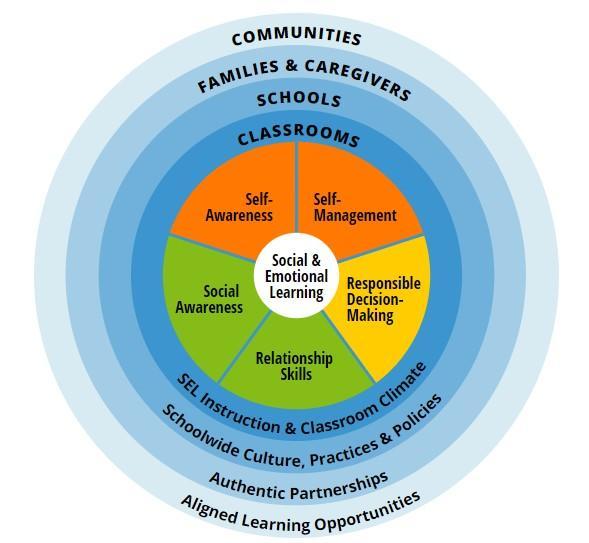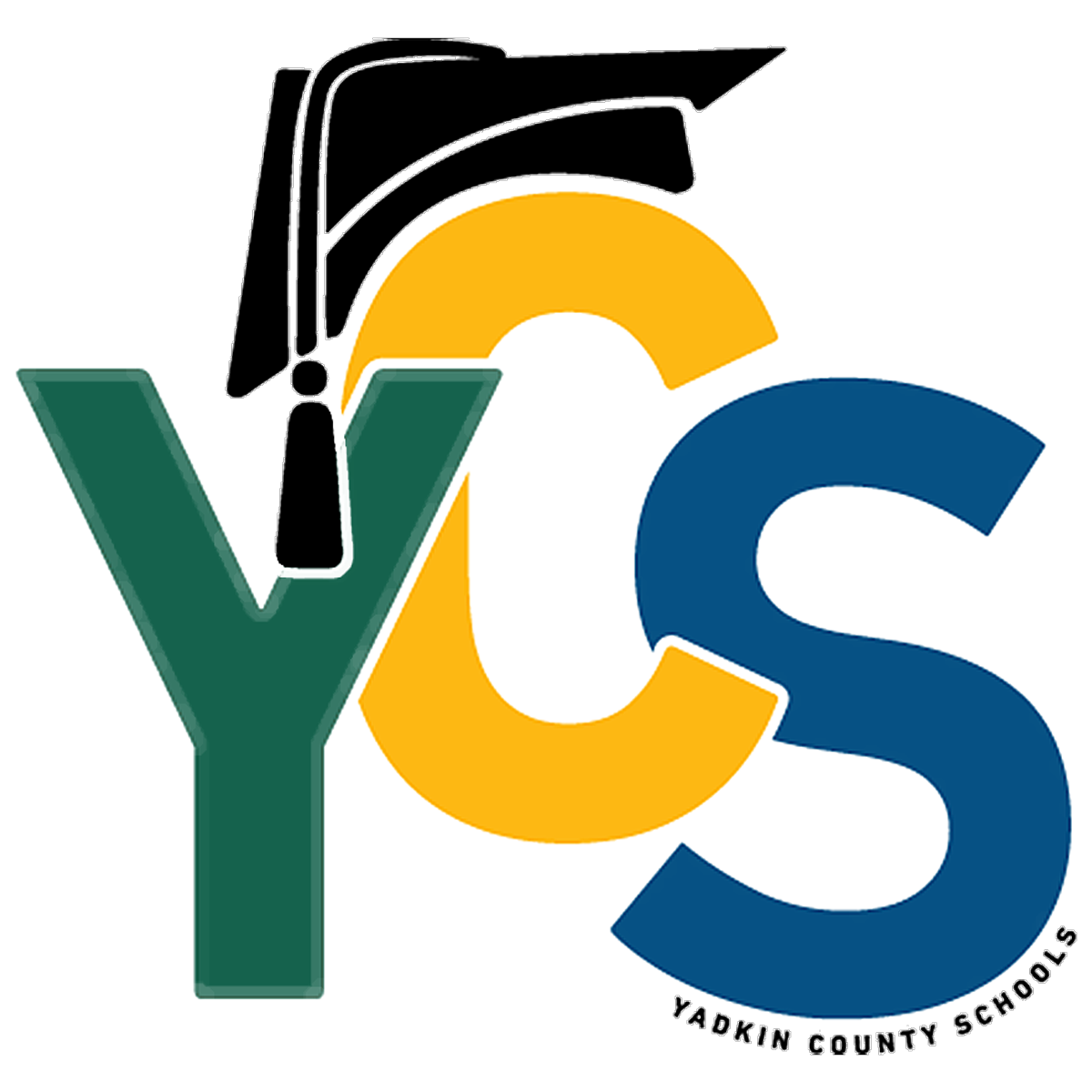Social Emotional Character Development
What is Social Emotional Character Development?
Social emotional character development (SECD) refers to the process of cultivating a person's ability to understand and manage their own emotions, build positive skills with others, make responsible decisions, and develop ethical character traits. These skills include the ability to recognize and manage emotions, to take the perspective of others, and to effectively resolve conflicts. Social-emotional skills are developed through daily living experiences and can also be taught and practiced. Research has shown that acquiring social-emotional skills supports academic achievement (Dulak et al. 2011). These competencies serve as a foundation for making responsible decisions that support individual well-being and, more broadly, support healthy communities.
The Yadkin County School District focuses on SECD by concentrating on five key competencies. These competencies are: Self-Management, Self-Awareness, Social Awareness, Relationship Skills, and Responsible Decision Making.
SECD is a strengths-based developmental process that begins at birth and evolves across the lifespan (Weissberg et al., 2015). It is the process through which children, adolescents, and adults learn skills to support healthy development and relationships. Research indicates that SECD promotes academic achievement, well-being, and positive life outcomes and can be a powerful tool for prevention and resilience when embedded with intentionality in curriculum, instruction, and school climate (Durlak et al., 2011; Taylor et al., 2017). SECD is one component in a Multi-Tiered System of Support, and it includes school-wide and district-wide integration to promote a positive school climate (Berg & Moroney, n.d.) and authentic family, caregiver, youth, and community partnerships (Weissberg et al., 2015). Unmet SECD needs and mental health challenges can lead to negative academic outcomes and ineffective work environments. Investing in the mental health of the whole child and the development of healthy relationships can create successful academic outcomes.
Berg, J., & Moroney, D. (n.d.). Digging deeper into social and emotional learning (SEL): Exploring the Sel Landscape. American Institutes for Research. Retrieved October 28, 2021, from https://www.air.org/project/digging-deeper-social-and-emotional-learning-sel-exploring-sel-landscape.
Durlak, J. A., Weissberg, R. P., Dymnicki, A. B., Taylor, R. D. & Schellinger, K. B. (2011). The impact of enhancing students’ social and emotional learning: A meta-analysis of school-based universal interventions. Child Development, 82(1): 405–432.
NC SBOE Strategic Plan. (2019). NC State Board of Education.
Taylor, R. D., Oberle, E., Durlak, J. A., & Weissberg, R. P. (2017). Promoting positive youth development through school-based social and emotional learning interventions: A meta-analysis of follow-up effects. Child Development, 88(4), 1156–1171. https://doi.org/10.1111/cdev.12864
Weissberg, R. P., Durlak, J. A., Domitrovich, C. E., & Gullotta, T. P. (Eds.). (2015). Social and emotional learning: Past, present, and future. In J. A. Durlak, C. E. Domitrovich, R. P. Weissberg, & T. P. Gullotta (Eds.), Handbook of social and emotional learning: Research and practice (pp. 3–19). The Guilford Press.

